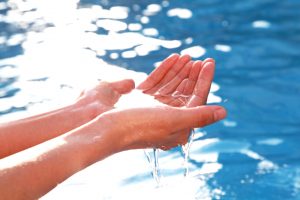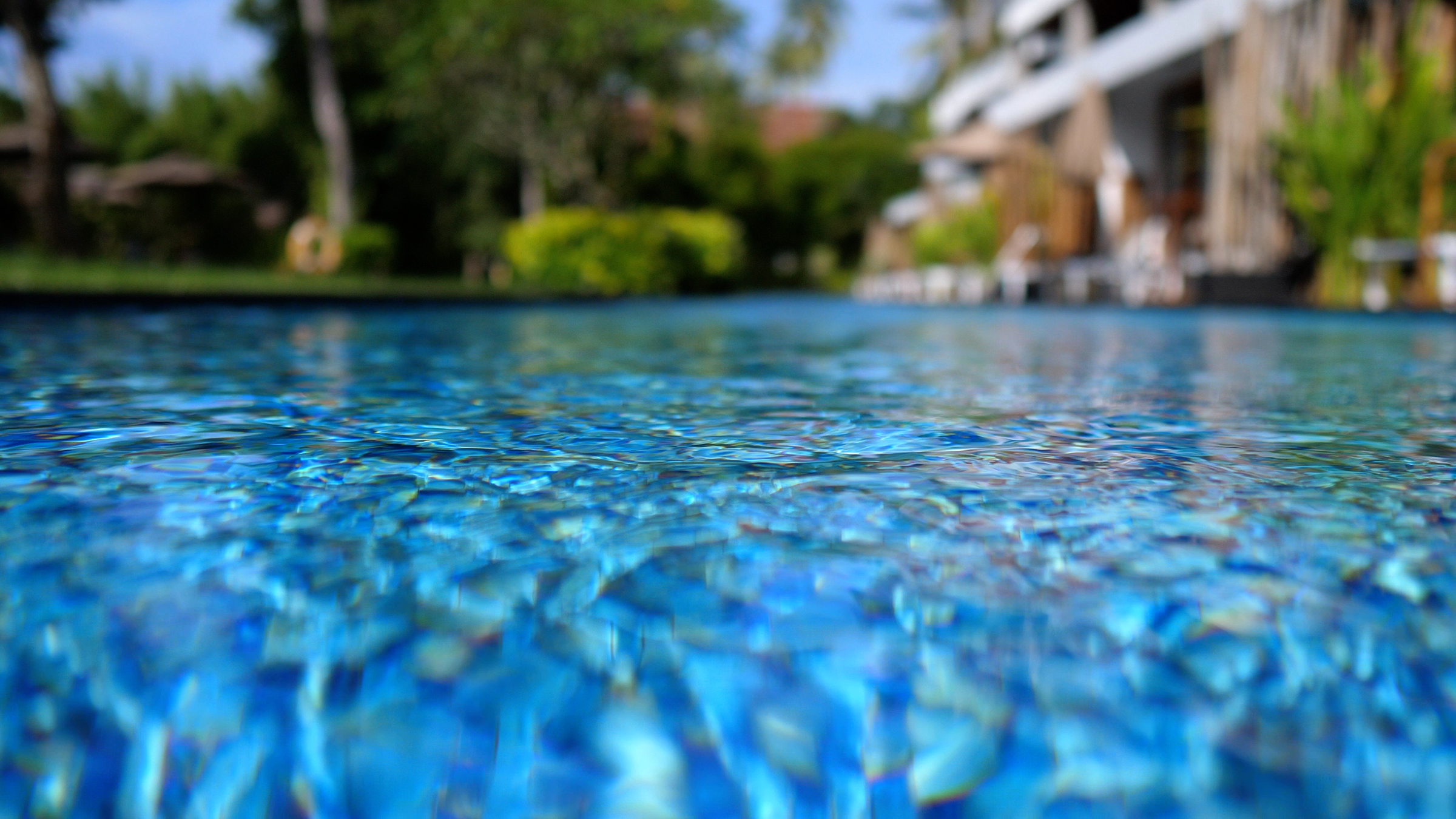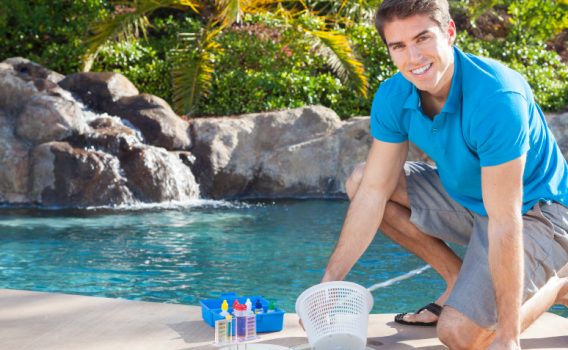 Spring is Here
Spring is Here
Take a sample of your water to The Swimming Pool Store for a complete and free analysis of your water in preparation for your swimming pool opening. We test your water with advanced software providing you with fast and accurate results.
Prepare for Water Treatment
When opening your pool for the first time you will have to shock your pool by following the directions for the size in gallons of water that your pool holds. A typical backyard rectangle pool is around 16 ft x 32 ft, holding approximately 30,000 gallons of water. Always know the size and gallons of water that your pool holds.
When you bring your water sample into The Swimming Pool Store, your free water analysis will include checking for:
- Free and Total Chlorine (Bromine is checked for spas)
- pH and Total Alkalinity
- Calcium Hardness
- Cyanuric Acid
- Iron and Copper
- Phosphate, Manganese and other critical readings.
- Salt (for salt water chlorine generator pools)
You’ll want to shock it, add chlorine, and check your pH, and alkalinity before adding other chemicals. This is where an experienced pool supply store can give you accurate measurements of all vital readings, with a proper treatment plan for crystal clear pool water that is healthy and safe to swim in.
Here’s everything you need to know about pool opening: preparing your water, preventing algae, types of chlorine, water testing, and more –
The Ultimate Guide to Pool Opening: Preparing for a Splashing Summer
Add Shock and Chlorine
Shock comes in granule form and should be poured directly into the pool water. You can walk around the pool and pour the shock in, be low enough to the water surface so that it lands in the water without being blown away.
Types of Chlorine
There are three different forms of chlorine typically used; granules, tablets, and liquid.
Chlorine granules can be more expensive than other forms of chlorine, and can be added like shock. It dissolves quickly and is safe to use in pools with vinyl liners. Granules usually carry a pH level right around 7, which is somewhere between tablets and liquid.
Chlorine tablets do not dissolve as quickly as the granules and are ideal for chlorinators. Tablets should not be placed in a skimmer basket, however, as this can accelerate erosion of equipment. Tables will contain a lower pH level than granules of around 3. You may have to use more pH increaser if you use tablets. Liquid chlorine has a chemical makeup identical to bleach, although liquid chlorine is 4 to 6 times stronger than bleach. It is advisable to wear eye protection and pants with long sleeved clothing (that you wouldn’t mind getting a bleach stain on) when adding this to your pool.
It is easy to use and can be poured directly into the deep end of the pool with caution to avoid direct contact with skin or eyes. If you accidentally get liquid chlorine splashed on your skin wash immediately with soap and water. Liquid chlorine comes with a higher pH close to 13, so keep that in mind and watch your pH level to adjust accordingly.
Let The Swimming Pool Store help you obtain crystal clear and healthy swimming pool water with a FREE water analysis, and effective and economical products. Ready to open your pool? Contact us to sign up for our spring pool opening special.
Contact The Swimming Pool Store to receive your free water analysis. We provide expert assistance for pool installation, renovation, opening, closing and maintenance providing clear and safe water for swimming pools.


